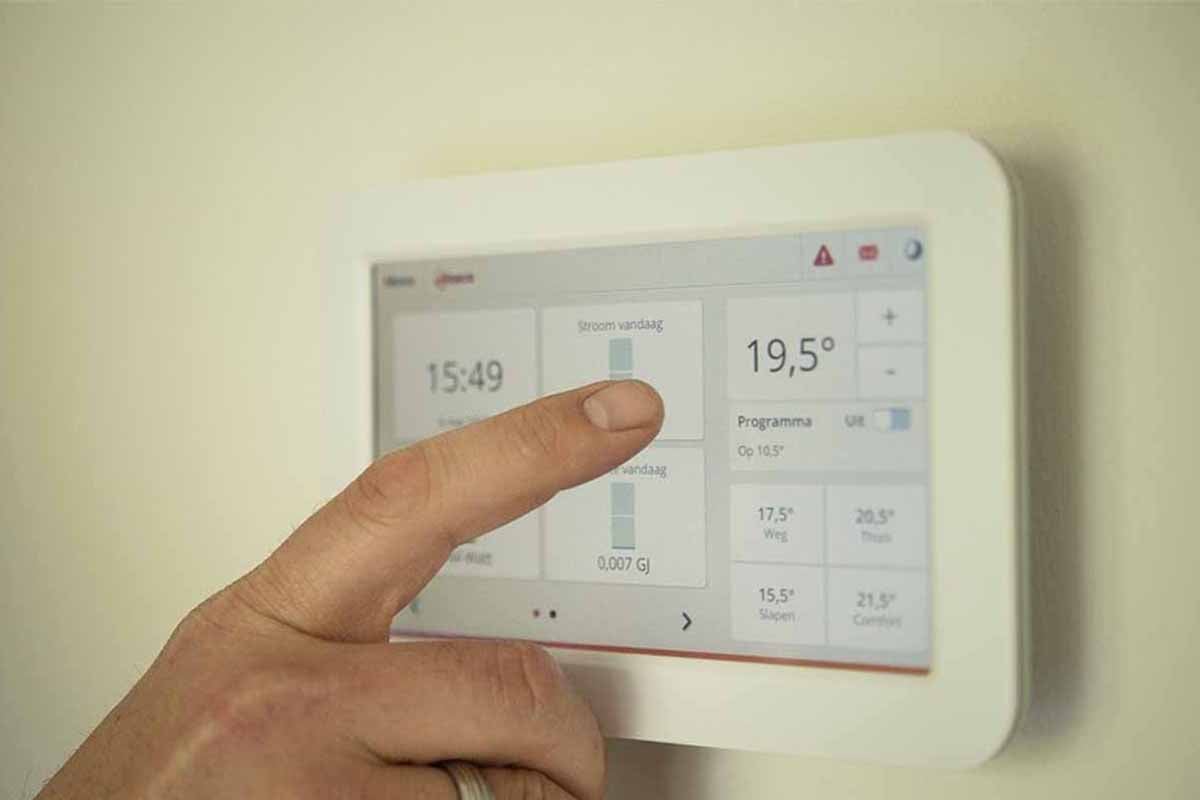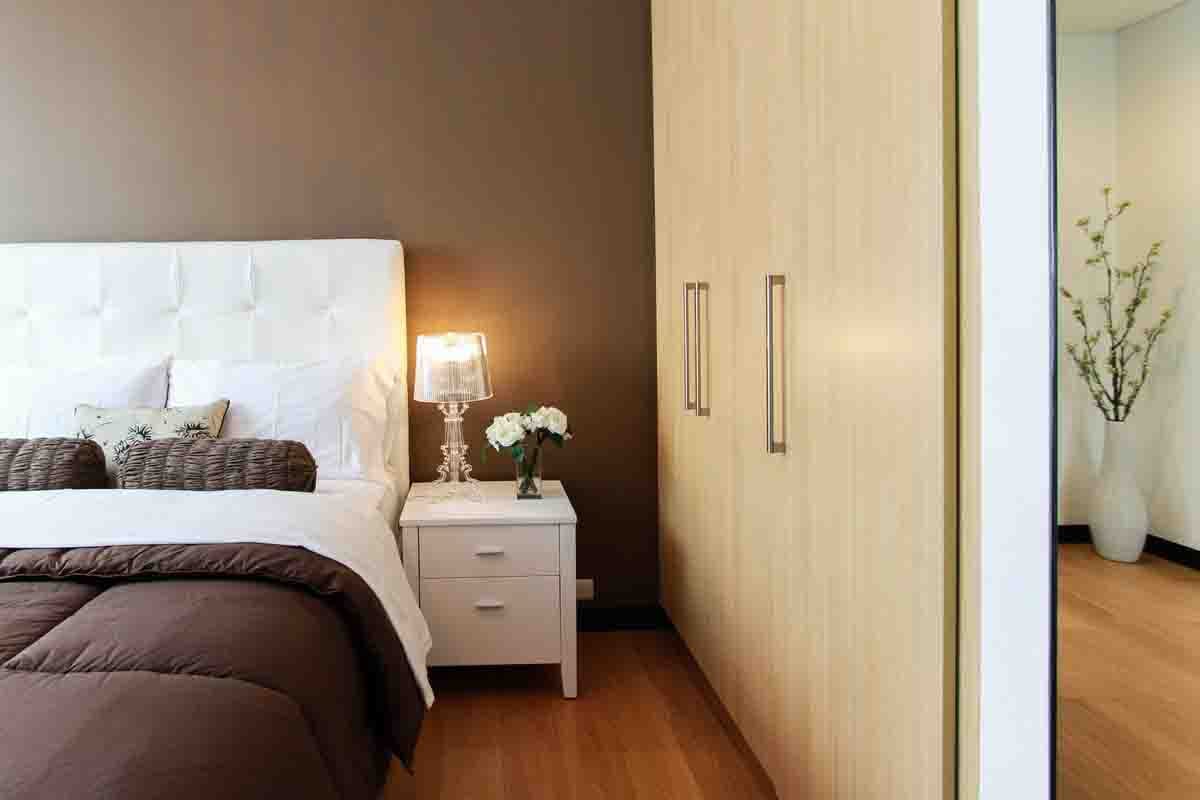
Imagine that you’ve just arrived home from a long day at work. You crash on the couch and indulge in an episode from your latest Netflix show before making yourself a quick dinner. From there, you freshen up and get ready to hit the sack by curling up with a comfy blanket.
But then your thoughts start to wander. You find that the more you force yourself to sleep, the more active your mind becomes. Frustrated, you end up staring blankly at the ceiling and end up resorting to browsing through your phone in search of tips to help you sleep.
Why you have a hard time falling asleep
There are several reasons to explain why you’re struggling with falling asleep. Here are five of the most common ones:

1. You’re stressed out
Stress can manifest as an inability to sleep. Maybe you feel exhausted at the thought of getting up the next day to show up for work. Or perhaps you’re already daydreaming about your weekend plans even if it’s only Monday. When your body is tired and you find that your thoughts are spinning, you’re likely trying to cope with stress.
The Recommended Fix: Just breathe. When we’re stressed out, we tend to overanalyze and complicate even the simplest of things. If you find yourself unable to sleep because you’re worried about tomorrow, consider practising deep breathing exercises to help you relax.
Inhale for 4 seconds, hold your breath for another set, and slowly release the air. Repeat this until you feel calmer.
2.You struggle with anxiety
It’s easy to feel all alone with your thoughts at night, especially when it’s quiet and there are fewer distractions.
You might find yourself recalling an incident at work or even from your day-to-day activities that you wish you addressed another way. When you play the scene over in your head, you might feel panic beginning rise: your heart beat faster, while your hands and feet start to feel colder.
The Recommended Fix: Try a Brain Dump. Find a pen and paper and unload your thoughts onto the page. To help ground yourself, consider listing down all the things that are currently bothering you with the help of a checklist. This list can cover tasks you need to see to at the office or other to-dos like groceries, appointments, or social engagements.
When you prepare yourself for all the things you need to tackle over the next couple of days, you’ll find that you can better manage your anxiety.
3. Unexpected hunger pangs
Hunger keeps the brain alert which causes you to wake up. Ever heard of leptin and ghrelin? These are “hunger hormones”.
Ghrelin’s job is to increase your appetite and is the hormone responsible for sending hunger signals to your brain. Leptin, on the other hand, suppresses your appetite and signals your brain that your body has enough energy stores.
They’re the check-and-balance for your hunger. And when these two are out of balance, they can throw your sleeping pattern off and as a result, affect your body’s internal clock. The inability to sleep is often associated with an increase in ghrelin levels.
The Recommended Fix: To control your hunger hormones, try to stay away from foods that are high in fat and try to regulate your caffeine intake.
If you find yourself hungry before your bedtime, grab a light snack instead of indulging in a heavy meal.
You can grab a small bowl of cereal and milk, cookies, toast, or a small muffin.
4. Regulate your coffee intake
If you’re a coffee-lover, you might want to know that the effects of caffeine last up to 5-6 hours. This means that coffee can affect the quality of your sleep since it’s a stimulant that keeps your mind alert. The coffee you drank this afternoon for an energy boost might end up keeping you awake for longer than expected.
The Recommended Fix: Try to avoid drinking coffee late in the day or close to bedtime. If you have to get your caffeine fix, go with a decaffeinated option instead of your usual.
5.Your bedroom doesn’t feel like a restful space
Staying in a cluttered bedroom can lead to difficulty falling asleep. Your bedroom should be a place for rest and relaxation, allowing your body the opportunity to recharge so that you’re ready to face the next morning.
The Recommended Fix: Take time to redesign your bedroom or simply tidy up to create a perfect sleeping environment for yourself. To help you design the perfect sleep sanctuary, here’s a checklist of the things that should consider:
- Decrease your bedroom lighting
Light signals the brain to wake up, which is why we normally wake up whenever the sun rises.
For better sleep, make your room as dark as possible. Switch off the lights and keep your gadgets away. If you’re nyctophobic or someone afraid of the dark, adjust your lamp to its lowest brightness and put on an eye mask.
- Set aside gadget-free time
Concerning lighting, electronic devices emit a kind of radiation called “blue light” that suppresses the release of melatonin which is a sleep-inducing hormone. This can make it difficult for you to fall asleep, delaying your bedtime and leaving you feeling tired and groggy.
While we understand that most of us use mobile applications to help us relax, it might be best to set aside any electronic devices 30-minutes to an hour before you turn in.
As an additional trick, by setting your phone out of immediate reach, once your alarm sounds, you’ll need to stand up to turn it off. This helps curb the impulse to hit the snooze button repeatedly and can help build the habit of committing to waking up at a set time.
- Listen to white noise or play soothing music
Nothing can disrupt a good sleep more than a noisy environment. But deafening silence can also activate your mind, prompting your thoughts to jump in different directions and causing you more anxiety.
Consider listening to white noise to help drown out unwanted sounds that keep you awake. Alternatively, you can put on soothing music to help you relax and to set the mood for sleep.
If you have an account on mobile music applications, you can check out their selection of sleep playlists that include nature sounds like rain or ocean waves and other white noise options.
If you don’t have mobile music applications, check out video streaming platforms on your desktop computer. There are hundreds of options for white noise, nature sounds, as well as instrumental music compilations.
And if listening to music isn’t your preference, you can also explore mobile apps that are built to address sleep challenges.
You can also buy a suitable sound machine or white noise machine. There are affordable products available from electronics stores. When using a white noise machine though, remember to moderate the volume to a level that is audible but not too loud. Choosing sounds that are smooth, deep and low are also ideal for helping you relax!
- Lie in comfortable bedding
Make sure that you have a comfortable mattress, pillow, and blanket.
Consider the thickness and softness that you suit and that you are comfortable with when you purchase your beddings. Consider also if you're the type of person who prefers pillows on either side of your body or if one pillow is enough.
Knowing what your preferences and needs are in the bedroom will help you identify what bedroom needs can help you doze off.
- Gauge the right temperature
Have you ever experienced shivering in the middle of the night because your air conditioner is too cold? What about when it’s too hot that you wake up on sticky sheets?
Finding the ideal temperature for you is crucial to restful sleep.
What is ambient temperature?
Often, the “right” temperature is subjective to what we feel at the moment. There is a difference, however, between room temperature and ambient temperature. When we talk about room temperature, most people describe it as not too warm or too cold. When discussing ambient temperature, the numbers need to be more accurate.
Instead of using your body as a gauge for temperature, factors such as weather, humidity, insulation, equipment or devices and people in the room play a role in ambient temperature. If there are more people or animals in a room, we can conclude that the room is warmer. The same thing can be said about a room filled with people using their electronic equipment.
Because the numbers rely on these multiple factors, ambient temperature is harder to control with just a thermostat and a heating system. Knowing what factors affect ambient temperature, however, can be helpful when adjusting our room’s temperature to something we prefer.
Why does temperature affect the way we sleep?

While most people believe that our bodies shut down during sleep, the truth is that sleep serves as an opportunity for us to recover and recharge. The Division of Sleep Medicine at Harvard Medical School cites several theories of why we sleep, including the restorative functions like muscle growth, tissue repair, protein synthesis and the rejuvenation of cognitive functions in the brain.
There are two main stages in the sleep cycle: NREM (Non-REM) followed by REM (rapid eye movement) sleep.
NREM sleep is made up of three stages that go deeper as you become unconscious and as your body begins to repair and rejuvenate itself.
These three stages of NREM are N1-N3.
- N1
This happens very briefly, about 5-10 minutes in. In this stage, our brain begins to produce alpha and theta waves, and our muscles begin to relax. Our eye movement and heart rate slow down since our body is transitioning from a state of wakefulness to one of sleep. While our eyes may be closed, it is fairly easy to get woken up by external stimuli like temperature, movement or sound in the room.
- N2
Here, you are sleeping but your sleep is light. The brain produces sudden increases in frequencies for brain waves called sleep spindles—the type of brain waves that signal complex activity in the brain during sleep. Your heart rate begins to slow down. After that, the brain slows down and is accompanied by a gradual drop in body temperature.
- N3
This is referred to as slow-wave sleep or the deep sleep phase. Here, the brain produces slower delta waves, causing eye movement and muscle activity to stop. It’s particularly difficult to wake up somebody in this part of the sleep cycle, as the body becomes less responsive to outside stimuli. If external factors do manage to wake you up, you will get a feeling of being disoriented for the first few moments.
As the brain produces more delta waves, our bodies continue to go into a restorative stage of sleep. During slow-wave sleep, our energy is restored, cell regeneration and increased blood flow increases, allowing tissue and bone to repair and the immune system to strengthen. This is the stage where our bodies can reap the most benefits of full, undisturbed rest.
- On REM Sleep
This cycle usually happens 90 minutes after they fall asleep, and after they've gone through the three stages of NREM sleep.
Have you ever talked (or even walked) while sleeping? These instances tend to occur during REM sleep as people typically experience dreaming at this point. Here, rapid eye movement picks up, our breathing becomes shallower and our heart rate increases, even as our muscles find themselves temporarily paralyzed. In REM sleep, our brains are revitalized, and this helps us stay sharp and alert the next day.
What counts as normal room temperature?

If temperature plays a big role in the quality of our sleep, how warm or cold should we keep our room, then? Of all the stages of sleep, it’s most crucial that we avoid disruptions during Stage 3. As previously mentioned, this is where our body recuperates, and this is also the stage of sleep where we process memories and experiences.
A study in France looked at the effect of continuous heat exposure on sleep stages in humans. It confirmed that increases in body and bedroom temperature can reduce sleep quality and make a person more awake.
In the study, six young men were exposed to a thermoneutral environment of air temperature (Ta) 20 degrees Celsius or 68 degrees Fahrenheit for five days and nights. This was followed by an acclimation period of five days and nights at Ta 35 degrees Celsius or 95 degrees Fahrenheit. This then followed by two recovery days and nights at Ta 20 degrees Celsius or 68 degrees Fahrenheit.
The young men were monitored for electrophysiological indications of sleep, their throat and stomach temperatures, as well as skin temperatures. Their night-time body weight loss was also measured by a sensitive platform scale.
The study found that sleep patterns were disturbed during the days and nights at 35 degrees Celsius or 95 degrees Fahrenheit. This is compared to the first five days and nights at 20 degrees Celsius or 68 degrees Fahrenheit.
The study further noted that total sleep time was significantly reduced and the amount of wakefulness increased.
The six young men also exhibited fragmented sleep patterns. The mean duration of REM episodes for them was shorter at 35 degrees Celsius or 95 degrees Fahrenheit. Their REM cycle length also shortened at this temperature.
When the temperature in your sleeping environment fluctuates between hot and cold, this interrupts the progress of the sleep cycle, ultimately leaving you exhausted when you wake up. And while our bodies are equipped with the natural ability to regulate our core temperature, being aware of different ways to regulate the temperature around you can help you sleep comfortably through the night with little to no interruptions.
To make this happen, adjust your room temperature to an optimal state. The recommended room temperature is usually between 15 to 19 degrees Celsius or 59 to 62.6 degrees Fahrenheit. You can also consider updating your bedding and investing in blankets to help you keep warm in case you’re more prone to feeling cold at night.
Now imagine waking up after a full night’s sleep: well-rested, full of energy and ready to take on the day ahead. Who wouldn’t want to experience that kind of feeling?
The great thing is, getting great sleep should have to feel impossible. Waking up excited to tackle another day with a sense of wellbeing is a right that we believe in! And the first step to achieving this is developing great sleep habits that contribute to better focus, improved moods and overall quality of life.
At Wellcare, we believe that sleep is a basic human right. Our 4D DWF technology makes it so that the heat generated by our blankets disperses through uniquely designed holes, so you can experience the ideal conditions for sufficient and comfortable sleep.
Are you interested in becoming a distributor of Wellcare's 4D DWF products? Click on the link below to learn more about 4D DWF electric blankets and heating pads - what sets them apart from conventional electric blankets, and the science that comes with creating the next step to sleeping in comfort.


.png?width=512&name=united-kingdom%20(1).png)


